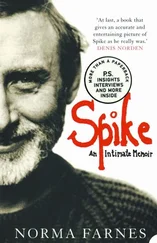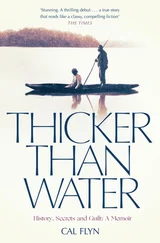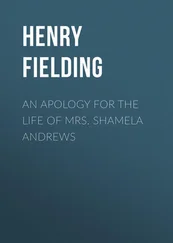“What do you think, Paul?” I asked as we stood on deck looking back at the shore. “Think you can handle this for the next two weeks?”
“It is unreal,” he said. “I think you could live on this yacht and never have to get off.”
It was true. The Christina even had its own laundry and dry cleaning facility. I had been given a copy of the manifest, which listed the names, nationalities, and passport numbers for everybody aboard the ship. Thirteen passengers, and a crew of forty-eight, which included hairdressers, chefs, electricians, and engineers. From a security standpoint, it was ideal—a self-contained city with very few people to deal with.
The crew weighed anchor and the Christina began to move away from the Greek mainland toward the coast of Turkey, slicing through the water with hardly an indication on deck that we were moving. Paul remained in proximity to Mrs. Kennedy while I went to the bridge to check with the captain and obtain as much information as possible about the immediate itinerary.
We were on our way to Istanbul, Turkey. But the captain didn’t know what, if any, activities were planned upon arrival.
I found Mrs. Kennedy coming out of her stateroom. She had changed into a pair of lightweight trousers and a thin blouse. Her hair was pulled back with a scarf, and she had a pair of oversized sunglasses propped on top of her head.
“So, Mr. Hill, what do you think of the Christina ?”
“It’s a very nice yacht,” I said as my mouth curled into a smile. “Not bad.”
She laughed. It was wonderful to see her laughing again.
“Mrs. Kennedy, can you tell me what your plans are for the rest of the day, and what you think you might do tomorrow?”
“Oh Mr. Hill,” she said as she grabbed my hands. “Will you please stop worrying about me and just try to enjoy yourself? This is so pleasant.” She gave my hands a quick squeeze and added, “I want you and Mr. Landis to have a good time.”
“Thank you Mrs. Kennedy, I appreciate that, but I do need to know your plans. I know we are on the way to Istanbul, but can you give me some more specific information?”
“I want to see the Blue Mosque in Istanbul and one of the national museums. You’ll have to check with Mr. Onassis—he knows where I want to go.”
“Okay. Thank you, Mrs. Kennedy, I’ll do that.”
I guess Mr. Onassis and I are going to get to know each other.
I went back to the bridge and told the captain I needed to talk with Mr. Onassis. He used the intercom system to connect with Mr. Onassis.
“Tell Mr. Hill to come to my suite,” Onassis said over the intercom.
The captain pointed me to Onassis’s suite, which was located just behind the navigation bridge.
I knocked at the door, and he immediately opened it.
“What can I do for you, Mr. Hill?” he asked. He spoke fluent English, with just the slightest hint of an accent. I had been surprised to see that the manifest listed his nationality as Argentine.
“I need to understand the immediate plans, and Mrs. Kennedy suggested I talk to you regarding the specific details.”
“Well, Mr. Hill, we are on the way to Istanbul, as you know.” He stared at me with his beady brown eyes, speaking slowly, in a somewhat condescending tone. “We will be going up through the Bosporus into the Black Sea and then come back out so Mrs. Kennedy can visit the Blue Mosque and the Topkapi Palace in Istanbul.”
He stared at me with intensity as he spoke. Was he trying to intimidate me? It wasn’t going to work.
“I see, Mr. Onassis. I’ll have to go ashore ahead of Mrs. Kennedy to make sure it is safe for her and that everything is ready.”
“Fine, I’ll arrange for you to do that,” he said. “I’ll let you know as soon as I talk with my people onshore.”
“Thank you, Mr. Onassis. And just so you are aware, this will be the case everywhere we go, so the more information you can provide me in advance, the better.”
With that I left the suite and went back to the bridge. I scanned the horizon, looking for one of the U.S. Navy ships that I knew were surveilling us. I never did see one, but I knew they were there.
That evening Mr. Onassis approached me and said, “Mr. Hill, the local authorities will send a launch to pick you up tomorrow morning as we pass the area on our way to the Black Sea. They will take you ashore to meet with Mr. Brown, the U.S. consul general. Will that be satisfactory?”
“Yes, sir. That will be fine.” I was certainly glad that he was cooperating, and even helping facilitate our security activities.
Paul and I kept a watchful eye on Mrs. Kennedy, but gave her plenty of space. She enjoyed dinner with the other guests and a relaxing time in conversation, while soft strains of music wafted throughout the yacht. Shortly before midnight, she retired to her stateroom. Alone.
The following morning, as the Christina, escorted by two Turkish gunboats, passed through the Dardanelles into the Sea of Marmara in the area off Istanbul, a launch pulled alongside. An external ladder had been lowered so that I could make the transfer between the two boats. It was a windy day, and there was a steady chop in the water, with such a strong current that the operator of the launch could not keep his craft very close to the bottom of the ladder. The gap between the two vessels was about five feet, and there was no choice but for me to jump.
The launch was bobbing up and down, a constantly moving target. I knew if I jumped and didn’t make it, I would be sucked under the Christina and that would be the end.
I knew Onassis was watching from above, probably with sinister delight. It was my first test.
I gathered all the energy I could and hurled myself across the gap with one giant leap. The Turkish crew grabbed me as I plopped into the launch. It wasn’t graceful, but I made it. All in one piece.
I heard a whistle from above, and there was Paul standing on the top deck, smiling, giving me two thumbs up.
The launch whisked me ashore, where I met with Turkish authorities and the U.S. consul general, Ben Brown. While the Christina cruised through the Bosporus into the Black Sea, across which are Ukraine and Russia, and turned around, I got a quick tour of the area.
A few hours later, Paul Landis accompanied Mrs. Kennedy and a few of the other guests as they came ashore on one of the Christina ’s tenders. Consul Brown and I were there to meet them with several cars, and a low-key police escort. Meanwhile, scores of plainclothes and uniformed Turkish police scattered throughout the tourist areas we were about to visit.
As we approached the Blue Mosque, the wailing sound of the muezzin calling the Muslim faithful to prayer sounded from high up in the minaret. Mrs. Kennedy dutifully placed a pair of loose slippers over her shoes, as did everyone else, before entering the mosque. A guide had been arranged to explain the history of the mosque, and Mrs. Kennedy listened with rapt attention as she admired the intricately tiled walls. At one point, she sat cross-legged on the Persian carpeted floor, along with rows and rows of Muslims who were praying, as the guide explained the religious rituals.
Even though the trip was unannounced and so spontaneous I had only found out about it a few hours earlier, word spread fast, and soon there were mobs of people clamoring around our little entourage. I was surprised at the number of American tourists there, and they seemed to be the most aggressive in terms of trying to get close to her. The Turkish police didn’t put up with any nonsense, though, and they did a great job of keeping the people from crowding us too much.
From the Blue Mosque, we went to the museums within the Topkapi Palace and the St. Sophia Byzantine church, the Hagia Sophia. Still more tourists swarmed around us, but Mrs. Kennedy largely ignored them, focusing instead on the exquisite pieces in the collections—emeralds and rubies the size of eggs, a two-foot solid gold elephant, and a throne of solid gold encrusted with emeralds. Needless to say, she was impressed.
Читать дальше











